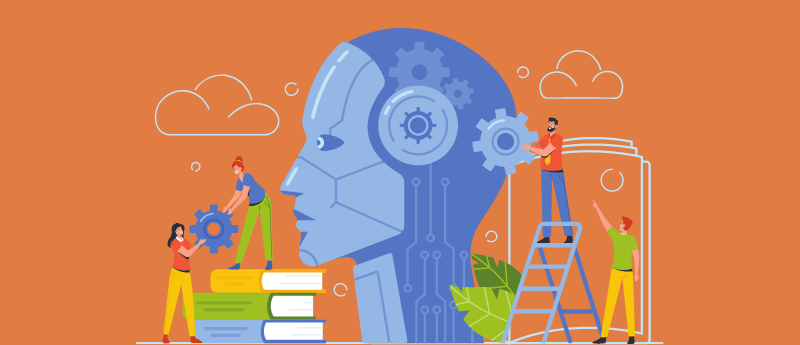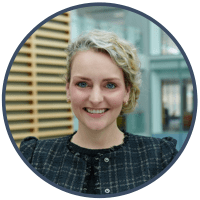How do we close the AI skills gap?

In this interview, Jenalea Howell (Informa Tech; London) provides her insight into how we can overcome the global AI skills gap, and the challenges we face in doing so. Jenalea also discusses how education and training can advance AI specifically within medicine.
Firstly, please could you provide a brief overview of your career to date?
I started in a bit more of a consulting role supporting companies as they implemented digital technologies: AI, IoT, and the combination of those transformative technologies, but also saw the power of bringing those together and convening communities at events. I really enjoy pulling together events and research, together. And that is what we do at Informa Tech as well.
What is the ‘AI in Practice’ training program?
AI has of course been growing and there has been a huge amount of buzz around AI for the last 12 to 24 months. But what we have been doing is trying to understand the skills gap that you see in the market. And so we have put together a dedicated program that has been worked on together with our AI business team and the result is this ‘AI in Practice Training Program’, which is approved by, and based on the Upskilling Framework from the UK Government’s Office for AI, plus an advisory board of AI experts, including experts from Microsoft, the Alan Turing Institute and Informa Tech. We have designed this program to support businesses, in the UK and globally, that are really at the forefront of AI in a way to position themselves as global leaders in the field.
What kind of challenges did Informa Tech face when creating the training program?
There are a lot of training programs out there, of course, for AI, which I think is fantastic. There is a serious skills gap that we all know about, we all read about it. To close that skills gap we need to find all of the different elements that we can provide support for. This means finding that very specific element that we could help close the gap on. And so, for us specifically, this element involves the non-technical executives. And that is who we are focused on for this training program – helping a non-technical executive understand AI and how to talk to data teams, how to support data teams, and how to pull that into a business and develop programs around that. And I think that, specifically when we look at these executives, these are the people that are helping to drive the strategy of companies. We wanted to also ensure that the program falls in line with what the governments are putting out as specifications for training. So really, the challenge is making sure that we were in line on all fronts for that.
How does the training program help to overcome the global AI skills gap?
If we think about an organization and we think about AI, we fundamentally do not believe the most successful organizations are the ones that have one person that is the dedicated AI guru. But where AI really permeates your organization, this is where you start to create skills gaps. In this case you need to upskill many people in the organization, not just one. And that is where this training program comes in.
There are training programs out there that focus on training data professionals. But this program is on the other side of that: the data professional talking to the non-technical person. And communication is key, it is important to be able to upskill people sitting on the other side of the table so that they can have better communication, better understanding of each other so that they can talk about these projects and plan these projects better. We believe proofs of concept will actually come to fruition. You will see projects thrive because of that. And this is ultimately why we think we need to upskill both sides of the conversation.
The training does not finish there. In addition to the training program, we have two-day classroom training. And then in addition to that, you also have a one-month follow up, where the training group will get back together to have a discussion led by the trainer to discuss any challenges that they faced. Every trainee also has a one-on-one coaching session at that point. After this, there is another group discussion 3 months post training program completion.
We also have a group called ‘VisionAIres’ in our AI community. These people are invited to join roundtables every month during the year. They talk about the challenges that they are running into in their business by implementing AI projects. This once-a-month roundtable is closed door, without any press, which allows people to be very open and share their experiences. Inviting people into a sharing community means they can understand and learn from each other.
I think a good example of who we are targeting with our training program is somebody that probably works with technology, like a CTO, but does not have an AI background. When they are working with an AI or data team, the training then enables them to understand a little bit more about AI and means they understand and ask things like ‘what can I ask for?’ ‘How do I get the most out of these projects?’ ‘What is possible and what are the limitations?’ So that as they are putting together their plans, they can think through that better and communicate more with the stakeholders.
How could the training program contribute to advancing AI specifically in medicine?
That is a good question because I think AI in medicine is a very broad topic and there are a lot of elements involved. Two of the main concerns in medical AI right now are data privacy and security. When we talk a lot about the elements where AI is used in medicine, those two topics come out every single time. If you think about improved decision-making, personalized medicine, enhanced workflow, boosting research, all of those, there is this sensitivity around health information. So, our training program specifically can really teach healthcare professionals how to securely manage their AI workflows and their AI applications while preserving a patient’s data privacy. Ultimately, that is the goal.
If you could pick one thing, what would you most like to accomplish in Informa Tech within the next 5 years?
I think one of our main goals is convening communities and that is a passion of mine as well. When we talk about AI, I specifically believe that we will move faster together and when we talk about our ‘VisionAIres’ community, many of them believe that as well. Peers want to learn from peers. They are craving that knowledge. A lot of people in the AI industry are inherently curious. And so I think one of the things in Informa Tech that we really want to achieve in the AI space is bringing that community together where they feel like they are supporting one another to drive the elements of AI forward. We want to accomplish innovation as a community, whether that be around skills, whether that be around key conversations on ethics. There are a lot of these conversations occurring at our community events and we just want to provide space for those conversations to happen.
Interviewee profile:
 Jenalea Howell is the VP for Informa Tech’s Applied Intelligence Group, driving the collaboration and opportunity Informa as a whole offers to the AI, IoT & quantum computing community. Her product portfolio includes events, media (AI Business, IoT World Today and Enter Quantum), and research, as well as the global members community, VisionAIres.
Jenalea Howell is the VP for Informa Tech’s Applied Intelligence Group, driving the collaboration and opportunity Informa as a whole offers to the AI, IoT & quantum computing community. Her product portfolio includes events, media (AI Business, IoT World Today and Enter Quantum), and research, as well as the global members community, VisionAIres.
Over the past 15 years, Jenalea has held a range of roles through consulting, product management and business development focused on Transformative Technologies and industrial markets. Previously, in collaboration with colleagues across the IHS Markit organization (London, UK), Jenalea drove the strategy to inform relevant industries of digital trends, including AI, IoT, and 5G and adoption across more than 12+ verticals. This alignment of technology and verticals is critical for supporting clients in developing strategic digital transformation initiatives.
Jenalea holds an MBA from the University of Texas at Arlington (USA) with a Bachelor’s in Public Relations from the University of Texas at Austin (USA).





